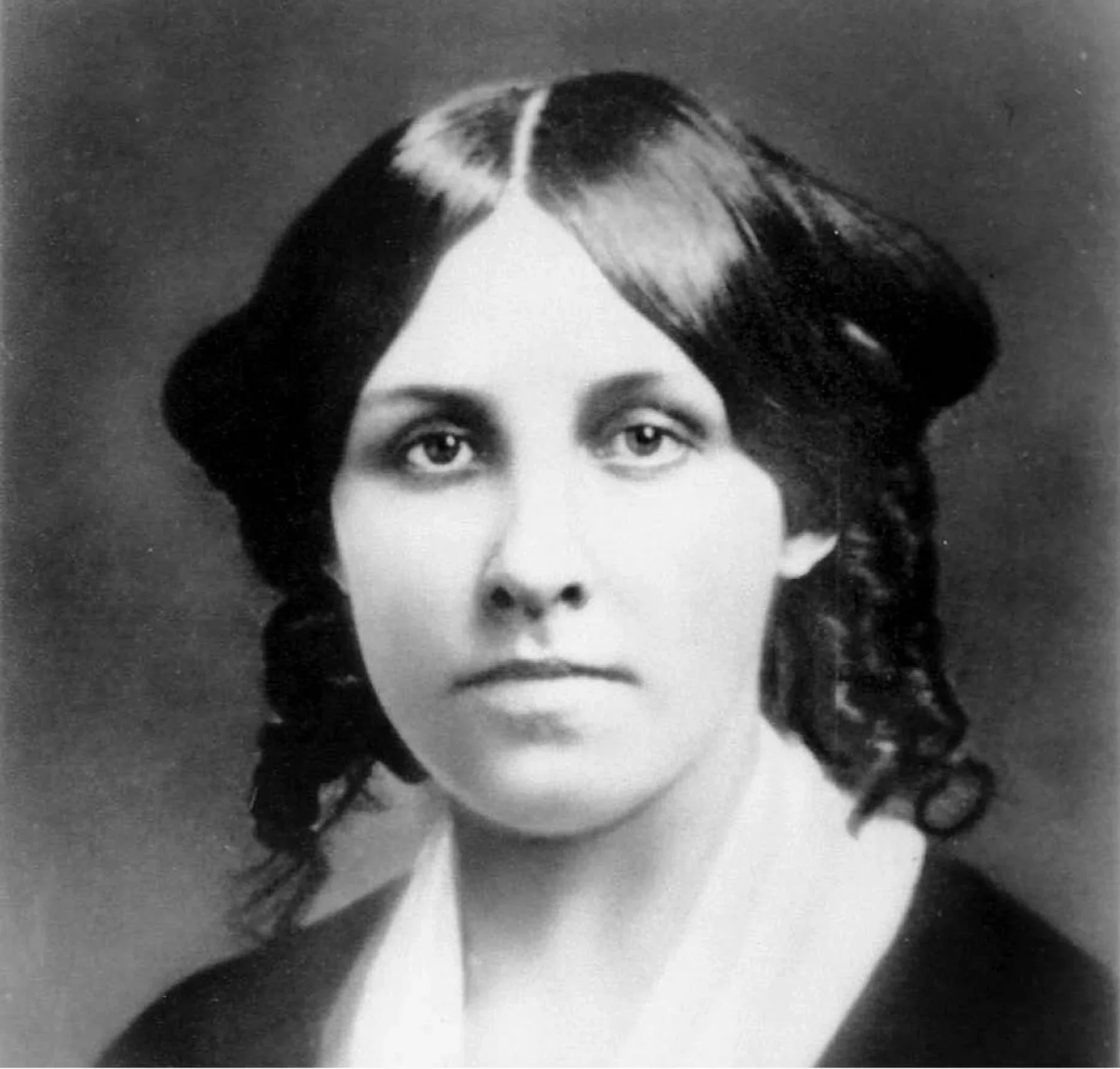In July 1835 Ralph Waldo Emerson purchased his Concord home, proclaiming it was “the only good cellar that had been built in Concord.” Along with the house, there was a sizable barn, on two acres of land. In addition to housing various animals, the barn was used for over a year as a schoolroom for Miss Foord’s school. The Emerson children attended the school along with Lizzy and Abby Alcott, Lizzy and Barry Goodwin and Caroline Pratt, all from Concord.
While the Emersons lived in Concord, many visitors came to see them. Emerson was a magnet for literary, philosophical and theological leaders, drawing them to Concord for the opportunity of conversation and the sharing of ideas with one of the most admired men of their day.
Friends Who Came to Visit
-
![]()
Abigail May Alcott
The wife of Bronson and mother of Louisa May, she was an ardent abolitionist and was active in Concord’s Female Anti-Slavery Society. Emerson’s wife Lidian also actively influenced his thinking on abolition.
-
![]()
Amos Bronson Alcott
Educator, Transcendentalist, writer and the father of Louisa May Alcott, he was a close associate of Emerson.
-
![]()
Louisa May Alcott
Author of the American classic Little Women, she greatly admired Emerson, who let her use his library and encouraged her aspirations as a writer.
-
![]()
John Brown
An abolitionist who believed that insurrection and violence were the only way to end slavery. He became a hero to many abolitionists including Emerson and Thoreau. Concord resident Franklin Sanborn was one of Brown's chosen “secret six.”
-
![]()
James Elliot Cabot
A lawyer and indispensable literary assistant to Emerson in his later years, he helped organize Emerson’s papers, and, at the request of the family, wrote the first "official" memoir of Emerson.
-
William Ellery Channing
Poet, writer, editor, Transcendentalist and a powerful influence on Henry David Thoreau, encouraging him to “build yourself a hut, and there begin the grand process of devouring yourself alive.”
-
![]()
Daniel Chester French
An eminent sculptor whose works include the Lincoln Memorial. Emerson was responsible for French securing his first commission: the Minute Man statue at the Old North Bridge in Concord, commemorating the local militias who fought the British at the start of the American Revolution. French sculpted several likenesses of Emerson, who sat for him in person.
-
![]()
Margaret Fuller
Journalist, writer, Transcendentalist, and women’s rights advocate.
-
![]()
Nathaniel Hawthorne
Writer of literary classics including The Scarlet Letter, House of Seven Gables and Blithedale Romance. While not a Transcendentalist, he was an admirer of Emerson, a neighbor and a frequent companion in walks and conversation.
-
![]()
Elizabeth Sherman Hoar
The fiancée of Emerson’s brother Charles (who succumbed to tuberculosis before the wedding), “Aunt Lizzie” was part of the Transcendental Circle and was an important figure in the Emerson family. Emerson referred to her often as “his sister.”
-
![]()
Judge Ebenezer R. Hoar
A Concordian who served as U.S. Attorney General under President Ulysses S. Grant. He was the father of Lizzy Hoar, an abolitionist and a frequent guest at the Emerson home.
-
![]()
James Russell Lowell
Poet, abolitionist and one of the founders of The Atlantic Monthly, along with Emerson, Henry Wadsworth Longfellow and Oliver Wendell Holmes.
-
![]()
Horace Mann
A leading public education reformer, teacher and abolitionist, he was also the brother-in-law of Nathaniel Hawthorne.
-
![]()
John Muir
One of the most famous and influential naturalists and conservationists, whom Emerson met in California in 1871. Muir did not get to Concord until June of 1893, 11 years after Emerson had died. When he visited he laid flowers on Emerson’s grave and dined with Edward Waldo Emerson. The Emerson/Muir meeting in California was momentous for Muir who wrote of Emerson, that he was "the most serene, majestic, sequoia-like soul I ever met.”
-
![]()
Theodore Parker
A Unitarian minister and Transcendentalist, he was an active reformer and abolitionist who inspired many, including Emerson and Abraham Lincoln.
-
![]()
Elizabeth Peabody
A teacher, publisher, abolitionist, member of the Transcendental Club and a founder of the American kindergarten. She published The Dial, and her West Street bookstore in Boston was a central venue for Transcendentalist talks. She also taught in Bronson Alcott’s Temple School and wrote Record of a School about Alcott’s unorthodox educational philosophy and methods.
-
![]()
Caroline Sturgis Tappan
American poet, close friend of Margaret Fuller and a frequent visitor and correspondent of Emerson and Henry James.
-
![]()
Henry David Thoreau
A writer, surveyor, Transcendentalist and close friend of Emerson. He was a member of the Transcendental Club and contributed to The Dial regularly. Thoreau lived with the Emersons at different times, and built his cabin on Emerson’s land at Walden Pond. He stayed at Walden for two years, two months and two days. His book Walden, his account of the experience, is an American classic.
-
![]()
Walt Whitman
An American poet and essayist. Emerson first came in contact with Walt Whitman when Whitman heard him deliver a lecture in New York City, “Nature and the Powers of the Poet”. Whitman self-published Leaves of Grass and sent a copy to Emerson, anonymously. Emerson sent that now famous letter to Whitman, “The most extraordinary piece of wit and wisdom that America has yet contributed”... Also in the letter the often quoted line “I greet you at the beginning of a great career.” Whitman called Emerson “Master”.



















